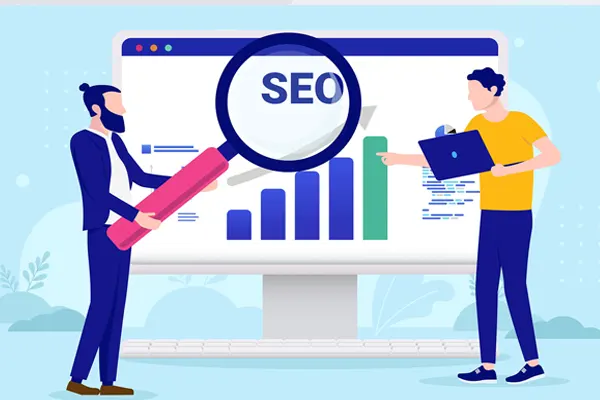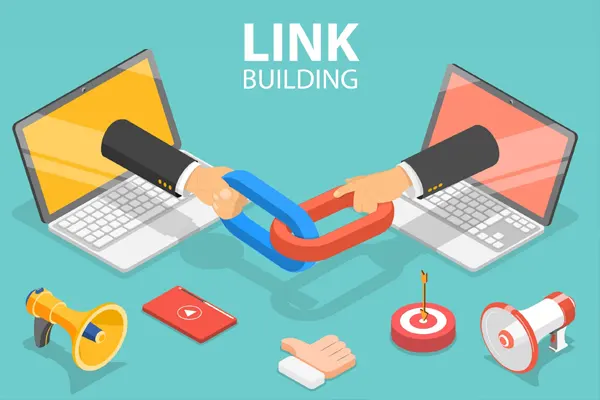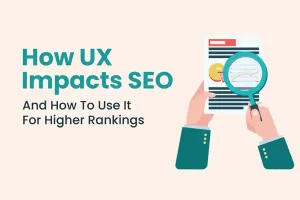What is Google SEO and why is it crucial for my business?
Imagine your business website appearing on the first page of Google when potential customers search for your products or services. That’s the power of Google SEO (Search Engine Optimization). But what exactly is SEO, and why is it a game-changer for businesses? This article dives deep into the essentials of Google SEO, explaining how it works, why it matters, and how it can transform your online presence to attract more customers and boost revenue.
1. What is Google SEO?
Google SEO is the process of optimizing your website to rank higher on Google’s search engine results pages (SERPs) for relevant keywords. It involves a combination of strategies, including keyword research, content creation, technical optimization, and link building, to make your site more visible to users searching for products or services like yours.
Key Components of Google SEO
- Keyword Research: Identifying the terms your target audience uses to search for solutions (e.g., “best digital marketing services” or “affordable website design”).
- On-Page SEO: Optimizing elements like titles, headings, meta descriptions, and content to align with user intent and search algorithms.
- Technical SEO: Ensuring your website is fast, mobile-friendly, and easy for Google’s crawlers to navigate.
- Off-Page SEO: Building credibility through backlinks from reputable websites.
- Content Quality: Creating valuable, engaging, and original content that answers user queries.
By mastering these components, businesses can improve their visibility on Google, driving organic (non-paid) traffic to their websites.
2. Why is Google SEO Crucial for Your Business?
1. Drives Targeted Traffic
SEO ensures your website appears when users search for terms related to your business. For example, if you offer website design services, ranking for “professional website design” connects you with customers actively seeking your expertise. Unlike paid ads, SEO delivers sustainable, cost-effective traffic over time.
2. Builds Trust and Credibility
Websites ranking on Google’s first page are often perceived as more trustworthy. SEO enhances your site’s authority by showcasing expertise through high-quality content, customer reviews, and credible backlinks. For instance, a well-optimized blog post citing industry data can position your business as a thought leader.
3. Maximizes ROI
Compared to traditional marketing, SEO offers a higher return on investment. Once your site ranks well, it can attract consistent traffic without ongoing ad spend. For example, a single optimized page targeting “SEO services for small businesses” can generate leads for months or even years.
4. Enhances User Experience
SEO isn’t just about pleasing Google—it’s about creating a seamless experience for users. A fast-loading, mobile-friendly website with clear navigation and valuable content keeps visitors engaged, increasing the likelihood they’ll contact you for services.
5. Stays Ahead of Competitors
If your competitors are investing in SEO and you’re not, they’re likely capturing your potential customers. By optimizing for keywords like “custom website design” or “local SEO services,” you can outrank rivals and claim a larger market share.
3. How Does Google SEO Work in Practice?
To illustrate, let’s consider a small business offering website design services. Here’s how SEO can help:
- Keyword Strategy: Research reveals that users search for “affordable website design for small businesses.” The business creates a blog post titled “Top 5 Affordable Website Design Tips for Small Businesses,” incorporating related terms like “cost-effective web design” and “website builder for SMEs.”
- Content Creation: The post provides actionable advice, such as choosing user-friendly platforms and optimizing for mobile. It includes case studies of successful website redesigns, boosting credibility.
- Technical Optimization: The website is optimized for speed, with compressed images and a responsive design that works on smartphones and desktops.
- Link Building: The business earns backlinks from industry blogs by sharing the post, signaling to Google that the content is authoritative.
- Tracking Results: Using tools like Google Analytics, the business monitors traffic and conversions, refining its strategy to target new keywords like “SEO-friendly website design.”
This approach ensures the website ranks higher, attracts relevant visitors, and converts them into leads.
4. Common SEO Myths Debunked
SEO can seem complex, but let’s clear up some misconceptions:
- Myth 1: SEO is a One-Time Task
- Reality: SEO requires ongoing effort. Google’s algorithms evolve, and competitors are always optimizing. Regular updates to content and technical fixes keep your site competitive.
- Myth 2: More Keywords = Better Rankings
- Reality: Keyword stuffing harms readability and rankings. Focus on natural, relevant keyword placement (1-2% density) for optimal results.
- Myth 3: SEO is Only for Big Businesses
- Reality: Small businesses benefit immensely from SEO. Targeting long-tail keywords like “website design for cafes” can attract niche, high-intent customers.
5. Getting Started with Google SEO
Ready to boost your business with SEO? Here’s a step-by-step guide:
- Conduct Keyword Research: Use tools like Google Keyword Planner or Ahrefs to find relevant, low-competition keywords.
- Optimize Your Website: Ensure fast loading times, mobile compatibility, and clear navigation.
- Create High-Quality Content: Publish blog posts, guides, or FAQs that address customer pain points, like “How to Choose a Website Designer.”
- Build Backlinks: Reach out to industry websites or local directories to earn links to your content.
- Monitor and Refine: Track rankings and traffic with tools like Google Search Console, adjusting your strategy as needed.
6. Why Partner with SEO Experts?
While DIY SEO is possible, partnering with professionals can accelerate results. Experts offer:
- In-Depth Analysis: Identifying the best keywords and strategies for your industry.
- Technical Expertise: Fixing complex issues like site speed or crawl errors.
- Time Savings: Allowing you to focus on running your business while experts handle optimization.
Investing in professional SEO services ensures your website not only ranks higher but also converts visitors into loyal customers.
Conclusion
Google SEO is more than a buzzword—it’s a proven strategy to grow your business by connecting with customers at the moment they’re searching for your services. By optimizing your website for relevant keywords, creating valuable content, and enhancing user experience, you can drive traffic, build trust, and outshine competitors. Start today by auditing your website or consulting with SEO professionals to unlock your business’s full potential.
Our Services
Related News
Frequently Asked Questions (FAQ)
How long does it take to see results from SEO?
SEO is a long-term strategy, and results can take anywhere from 3 to 6 months (or longer) to appear, depending on competition, industry, and optimization efforts. Consistent updates, quality content, and technical improvements help accelerate rankings over time.
What’s the difference between SEO and paid ads (Google Ads)?
- SEO focuses on organic (free) rankings through optimization, requiring time but offering sustainable traffic.
- Google Ads provides instant, paid visibility at the top of search results but stops working once the budget runs out.
Does SEO work for local businesses?
Absolutely! Local SEO (optimizing Google My Business, local keywords, and customer reviews) helps small businesses attract nearby customers. Over 46% of Google searches have local intent, making local SEO crucial for shops, restaurants, and service providers.









